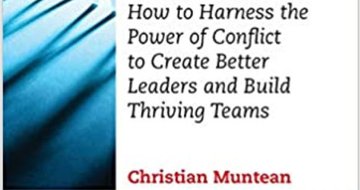Unmet goals, putting out fires, staff issues, displeasing people, and general tiredness all contribute to discouragement. When it weighs us down, how can we dig out?
Leading a team can be a lot like sailing a boat. When things are going fine, you can feel like you know what you're doing. But when the storms kick in, you find out how ready you really are.
Your best leadership will always flow when you avoid the emotional extremes.
There are common “pain points” in most organizations. Any one of those may be the right answer to the problem. But too often, the desired change doesn't happen.
These last 19 to 20 months have been deeply challenging for many leaders and organizations. But this isn't the first time a challenge has been experienced. Nor will it be the last.
We need to know how the eternal Word of God shapes our understanding of current issues and how we can share the gospel compassionately and courageously with the people around us.
With many facets of society in turmoil, we often expect the church to be a place of solace, serenity and shalom. That hope and dream is not always realized.
Not all ideal cultures look the same, but they have the same ingredients.
There is a tension between leaders and creatives within any organization.
One of the most common sources of organizational conflict is ambiguity regarding expectations; particularly, those wrapped up in the concepts of roles, responsibilities and organizational goals.
Every company builds its own culture. But very few do so intentionally.
Many leaders struggle with building cultures of accountability. As a result, they spend an enormous amount of time, energy, and resources chasing after their tails.
Like water to the fish, culture is pervasive and omnipresent in our workplaces. Unlike water to a fish, leaders have the opportunity to be shapers and crafters of their culture.
I've consulted with hundreds of clients across industries and cultures. While everyone is unique, their challenges usually are not.
Instead of acting as if conflict is an intrusion, the best leaders recognize that addressing conflict effectively is one of their most important responsibilities.
Conflict is a highly subjective experience for most people. Subject to interpretation. In nearly all cases, there is a lack of shared information, facts, and understanding.
As leaders, the ability to use our experience and our responses as tools to defuse conflict and increase understanding is a critical skill.
Would you like to radically transform your experience with conflict at work (or even at home)?
If you have ever worked with people, you have experienced conflict. It's almost impossible to work alongside, with, or for someone and not bump heads or disagree on something.






















